“I had to find my own reality and truth”: An interview with Saturday Night Fever star Richard Winsor
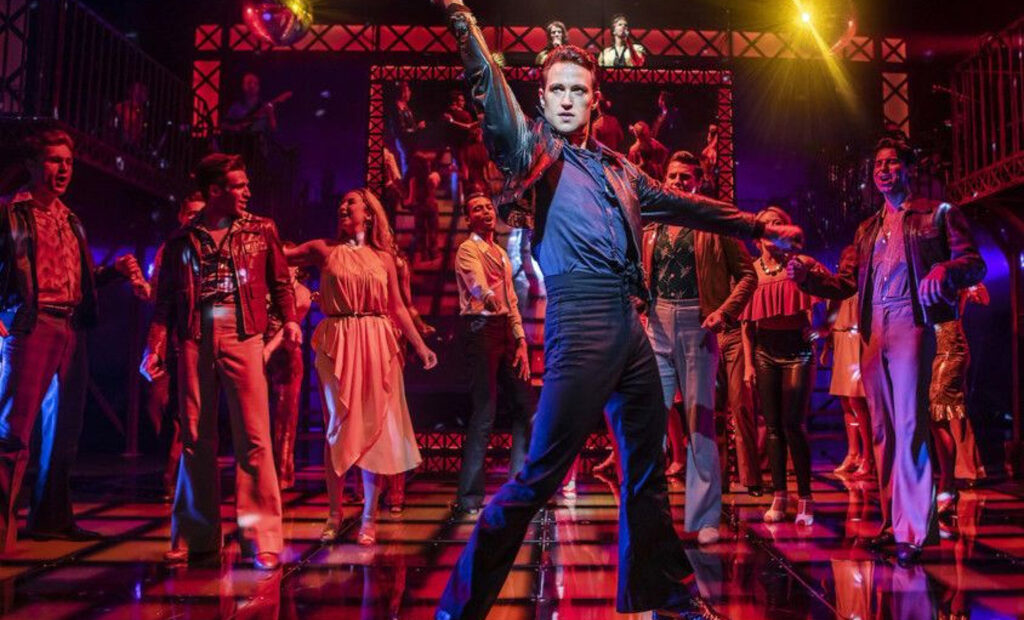
Bill Kenwright’s production of Saturday Night Fever at the Peacock Theatre tries to capture the gritty reality of the iconic John Travolta movie from 1977, while still making it suitable for a modern audience. Richard Winsor, who played the fan-favourite character Caleb Knight in the BBC television medical drama series Casualty from 2014 until 2017, and has danced in a number of celebrated Matthew Bourne productions, has granted us an exclusive interview to discuss the show, his upbringing and his aspirations.
What was the first musical you saw live in a theatre?
The first musical probably was West Side Story. It was on tour, and I think it was up in Sheffield. I must have been 12 or so, and I absolutely loved it. Not long after that was Saturday Night Fever in the 90s at the Palladium with Adam Garcia. I was about 14 or 15. I was blown away when I watched that! It made me want to do it at some point in the future.
How did you first get into dancing?
It was always in the family, actually. My mum had a local dance school in Nottinghamshire and I kind of reluctantly did dancing – mainly of course because there were girls in the studio, you know, as a young lad! And I played a lot of sport and made a decision at about 16 when I got into a number of places to train – I had to decide whether to carry on with my sport and do A-levels and all that stuff or go into theatre and dance, and I chose dance. And I went to the Central School of Ballet at that point. I guess it’s down to having it in the family.
Is it very different portraying more dance-focused roles as opposed to dance roles with a focus on acting?
To be honest, I’ve never really just done pure dancing for the sake of it. When I did dance it was with Matthew Bourne who is a narrative storyteller. Even though there are no words, the shows I’ve done have pretty much been mainly just about the story, the dance is an accompaniment to the storytelling. So it wasn’t that much of a leap for me when I started to get into acting in my 20s – to put words and characters to it. I always wanted to act in the first place but I chose the dance route to access all that, so for me personally it’s not that much of a difference. I know from other people who are more pure dancers who then went into acting and needed to speak or say something on stage who struggled, and they found their ways of thinking about performing quite different. But for me personally, it was a relatively nice way of expressing myself.
What led you to choose Saturday Night Fever?
As I said, I saw it in the 90s played by Garcia and I thought it was amazing and I loved it. I didn’t think about it much for a long time, I didn’t really think I’d ever get a chance to perform in anything like that. I don’t really look anything like him – of course in the show I blacken my hair and do it up! I never really identified with the role as such, because of course John Travolta is John Travolta and kind of a unique being and a bit of a legend in this iconic role. But I had done Casualty in TV for about four years, and Bill Kenwright is a massive fan of Casualty – he says it’s one of his favourite programmes, which is amazing – and he really liked my character on that. When I left he found out that I was a dancer and contacted me and my agent and said he wanted to stage Saturday Night Fever and thought I’d be the perfect candidate for it. I said I’m not known for singing, but he said not to worry about that. If I wanted to, I could do a little bit of singing in it, but that it’s mainly about the dancing and a character who is obsessed with it and loves dancing. I rewatched the film at that stage, having seen it years ago, and I was just blown away by how gritty it is, how brilliant it is as a 70s film noir period character piece. So gritty, with a wonderful soundtrack, the charisma that he portrays is wonderful, and Bill was very much of the mind to keep it similar to the film – as in, keep the drama very similar. So for me as an actor looking at the role, and the story and the themes they play with, I thought it would be a lovely little thing to get my teeth into. So we talked further and I got onboard from that point onwards, really, to help get it up on stage.
Saturday Night Fever is of course a heated musical that mixes two very different themes together: Tony’s shot at stardom coupled with a much darker undertone. In what ways do you think it is still relevant today?
I think it shines a light on how far we’ve actually come with sexism and misogyny and the themes of the film. We have come quite far – especially with the #metoo movement. Of course, it’s still a musical, not a political piece – a fun night out – but it definitely makes you think, “Wow, things like this were portrayed in the late 70s?” and whether you think it needs to be seen as it is, it does kind of make you think that things have changed for the better. In terms of the shot at stardom, I think everyone can relate to the aspiration of wanting to follow your dreams and wanting to make the best of yourself – but you may be stuck. So I guess it’s also inspirational and would relate to today’s audience.
Bill Kenwright says that he is attempting to replicate the same experience on stage as he had when watching the movie. In what ways will this show differ from other stage productions of Saturday Night Fever?
Well, we started out wanting to keep alive as much of the grit as possible, but because of the heavy movement I mentioned before we’ve been through in the last few years that is changing the world for the better, there are certain things we had to soften slightly. But only in a sense of taking the edges off – nothing dramatic. We changed the language here and there because some of it is quite drastic. Offensive is fine, but offensive for the sake of it: that isn’t necessary. In terms of the journey of the story and the characters, it is pretty much as it is in the film, so there’s nothing we left out there, and we’ve kept in the themes – the denouncing of religion, rape and misogyny because it is important. We’re delivering a piece from the 70s, and if we delivered a sugar-coated piece it would be another Grease-style musical, which it’s not. We wanted to keep it somewhat dark. And if you do want to see it and are a fan of the film, you’ll get enough from the film to be satisfied and yet it’s okay for a modern audience.
Are you taking a lot of inspiration from John Travolta’s iconic depiction of Tony Manero or are you taking a new approach to the character?
I would say it’s impossible to go into a role and production like this without at least acknowledging and taking note of something as iconic as that. If you watch any clip on YouTube or see the film and you see some of the dance routines, it’s just mind-bogglingly amazingly beautiful what he did. So fluid, so characterful, you can’t not take something on board! So of course I’ve watched the film – not for a while, but I was watching it while creating it and all those things and getting into character. I still go back to some of the clips from the disco – even now it comes up on Instagram a lot – and I watch them just to re-touch-in with some of the style of what he was trying to achieve, which is completely classic, from the 70s, right there and then, so I’d be a fool not to want to try and take some of it. But as an actor, there’s no point in just mimicking. You can’t just recreate a mimic, so I had to absorb some of the themes and the story of what he was putting into it, but also find my own way through it, because otherwise, I’d just be a carbon copy trying to imitate or doing an impression or impersonation – there’s no point in that. I had to find my own reality and truth of who the character is from my point of view, whilst letting the “iconic-ness” absorb into me.
If you could star in any role that you wanted, what would it be?
That’s quite a tricky one! I’m working on a few projects at the moment that I’m trying to get off the ground. Whether they’re my dream roles or not, just good to get them up and running on the stage would be a dream! That’s a role in Patrick Marber’s Closer – a wonderful piece. Maybe a stage version of The Godfather or something – a fantastically written play, playing one of the two roles, because they’re great roles. I mean, a lot of people would say Hamlet or something, but what can you bring to Hamlet that someone else hasn’t done a thousand times already? So yes – something weirdly abstract like bringing The Godfather to the stage, playing the Al Pacino role, something like that.
Are rehearsals still difficult and/or limited by Covid restrictions, or are you by now able to concentrate in full on the production?
By now we’re pretty much free to do whatever and whenever we want. But initially, before Christmas when we started rehearsing this, we had to cut short because of the peak then and for a couple of days we were just wearing masks and had a no touching situation, and as you know there’s a lot of partnering, touching and kissing. We weren’t even allowed to go within two metres of each other, so it was very weird trying to stage something when you couldn’t do what you were meant to be doing. So it was tricky, but now we’re fine.
Are there any other exciting projects lined up for you in the near future?
I’m in negotiations at the moment to do another Matthew Bourne production. It’s a bit of an epic at the Albert Hall – a two-week run of his Car Man – and I’m potentially going to be playing the lead in that. And then I’m working – as said – on a couple of different projects that I’m hoping will get off the ground.
What question do you wish interviewers would ask you?
What I’d like to be asked would be how you manage to do eight shows a week of this show because it’s extremely exhausting. I only read one review that wondered how we were able to keep our stamina up and do the whole thing in one evening. But it’s not just one evening, it’s eight shows in six days, and it’s a lot of physicality, a lot of hard physical strength that is required – so that kind of question or recognition would be great, I guess.
Thank you very much for your time!
Michael Higgs
Saturday Night Fever is at Sadler’s Wells from 4th February until 26th March 2022. For further information or to book visit the theatre’s website here. Read our review of Saturday Night Fever here.

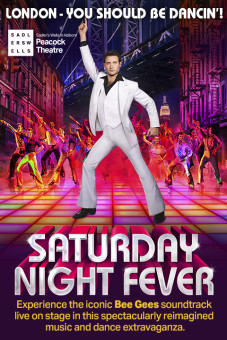
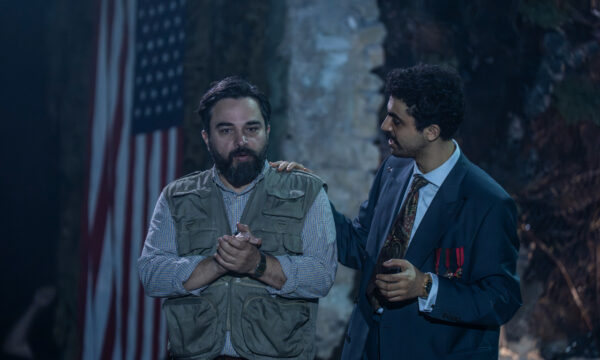
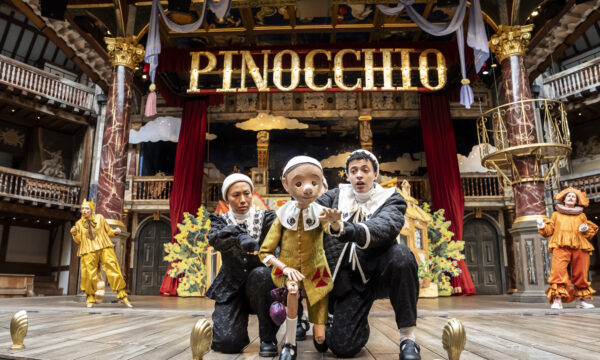
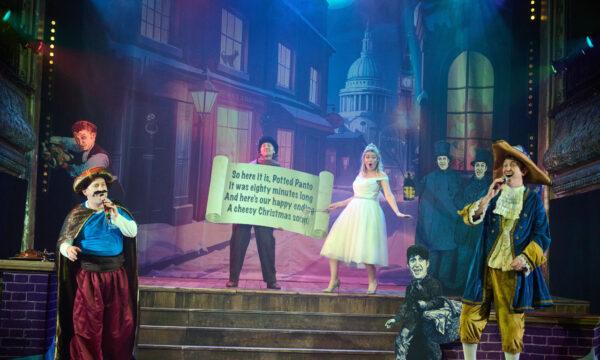

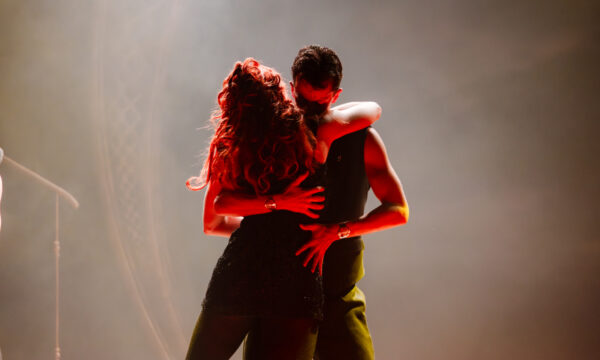
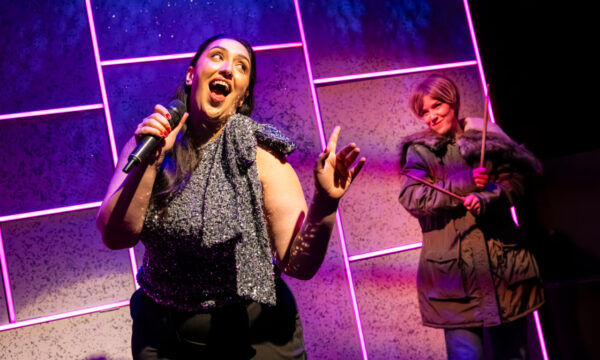
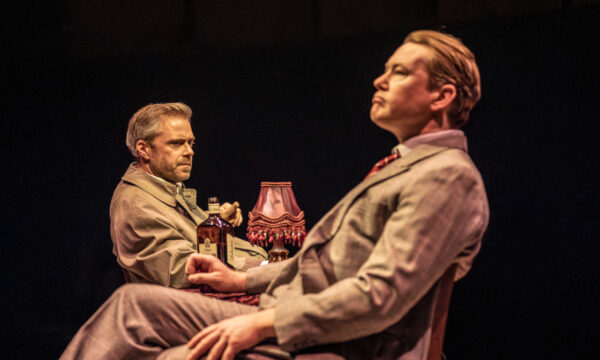
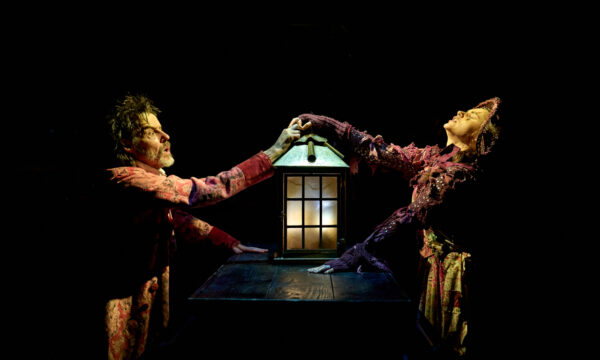
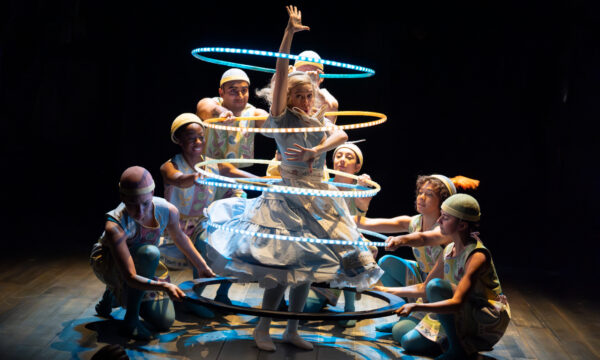















Facebook
Twitter
Instagram
YouTube
RSS